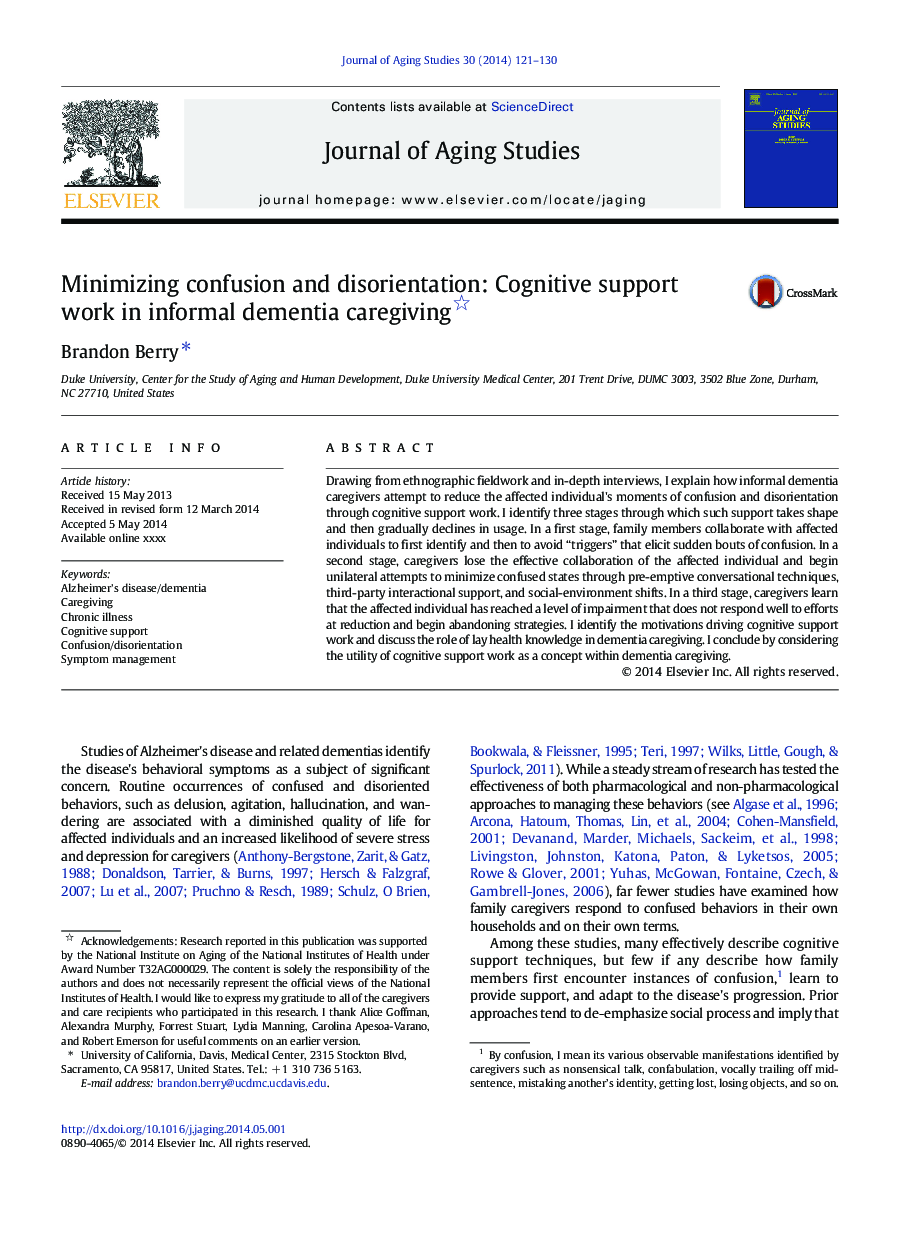| Article ID | Journal | Published Year | Pages | File Type |
|---|---|---|---|---|
| 7517772 | Journal of Aging Studies | 2014 | 10 Pages |
Abstract
Drawing from ethnographic fieldwork and in-depth interviews, I explain how informal dementia caregivers attempt to reduce the affected individual's moments of confusion and disorientation through cognitive support work. I identify three stages through which such support takes shape and then gradually declines in usage. In a first stage, family members collaborate with affected individuals to first identify and then to avoid “triggers” that elicit sudden bouts of confusion. In a second stage, caregivers lose the effective collaboration of the affected individual and begin unilateral attempts to minimize confused states through pre-emptive conversational techniques, third-party interactional support, and social-environment shifts. In a third stage, caregivers learn that the affected individual has reached a level of impairment that does not respond well to efforts at reduction and begin abandoning strategies. I identify the motivations driving cognitive support work and discuss the role of lay health knowledge in dementia caregiving. I conclude by considering the utility of cognitive support work as a concept within dementia caregiving.
Related Topics
Health Sciences
Medicine and Dentistry
Geriatrics and Gerontology
Authors
Brandon Berry,
